The Ministry of Culture, Sports, and Tourism announced to raise the discount limit from South Korea’s fixed book price to surpass 15 percent for independently-owned local bookstores in order to encourage more incomers on March 4.
Fixed book price (FBP) regulates the publishing market by restricting book prices to be sold at fixed prices with a possible discount of 15 percent maximum. The aim of this policy is to prevent monopoly of big retailers and to secure the diversity of literary options through promotion of independent bookstores.
According to a survey conducted by Ewha Voice from March 8 to 15, where participants’ age range from twenty to early thirties, 74 out of 141 participants appeared to not have used an independent bookstore before, marking 55.3 percent of the total sample. In addition, 79.4 percent of those that have experienced independent bookstores visited the place to experience the space itself instead of purchasing books.
“I often visit independent bookstores because of the atmosphere it exudes,” said Ji Haneul, a rising junior from the Division of Communication & Media. “Compared to bigger bookstores, independent bookstores attract visitors by displaying books under a specific theme.”
Accordingly, in the past decade, South Korea’s independent bookstores have evolved into a socalled larchiveum, a portmanteau of “library,” “archive,” and “museum,” that offers unique literary experiences.
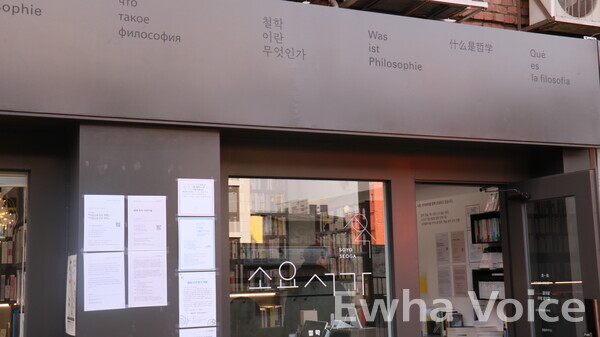
For one, Soyoseoga is an independent philosophy-themed bookstore located near Jongno-gu. Besides selling books, Soyoseoga holds in-person meetings including book talks, meetings with the author, and a book club with topics ranging from philosophy, feminism, literature, and arts.
“You know how awkward it may sound if one says, ‘My hobby is learning about philosophy,’ but this is what Soyoseoga hopes to encourage by becoming a space for ‘philosophy hobbyists,’” said Yun Sangwon, the owner of Soyoseoga.
According to Professor Kim Jung Bae coaching creative writing in Wonkwang University, independent bookstores are also a space to foster debut authors and artists.
“An important role of local bookstores is to introduce rising novelists and artists to the scene, since large retailers and online bookstores mostly put forth best-selling authors for sale,” Professor Kim said.
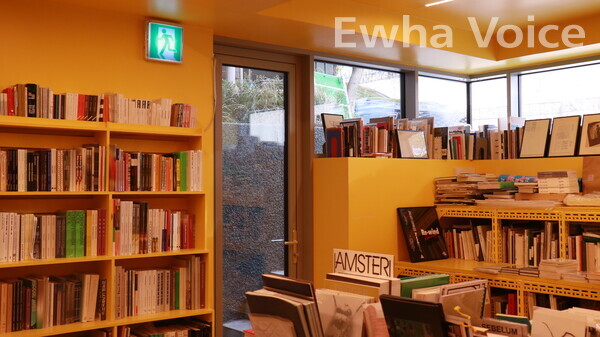
In line with this, Lim Kyung Yong, owner of the independent bookstore The Book Society, explained that his bookstore was created to display works of art that were unfamiliar back then in 2010 when it had just been founded.
“Our first publications under our own imprint, which included personal essays and artist books, did not make it to ordinary bookstores, so we decided to create a space of our own and share it with the public,” Lim said.
Over the alleviation of FBP, Min Byeong Hun, novelist and owner of the independent bookstore Jinbu Books Studio, added since the supply rate itself was different from small bookstores and big retailers, putting a discount on their books would result in no margin.
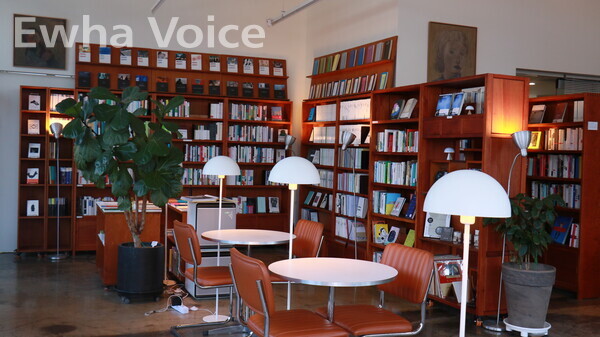
Jinbu Books Studio operates as both a bookstore and a café, selling books on literature and arts. The space recently invited a South Korean writer Hwang Jung-eun to recite her works for two hours.
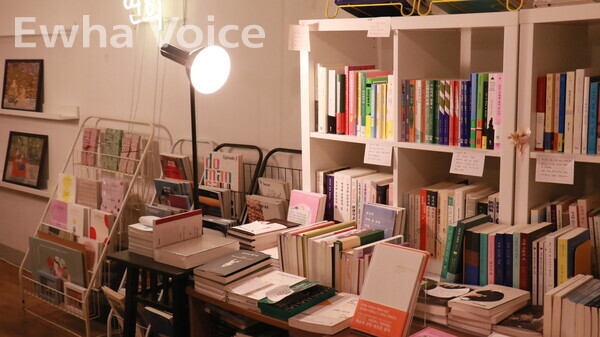
Gu Suna, a writer and owner of the independent bookstore Chaegbangyeonhui in Mapo-gu, expressed further concerns on the government’s decision to cut budgets that used to support programs within independently-owned bookstores.
In fact, the government proposed a cut in funding books, which used to be 6 billion won, including 1.1 billion won that supported local bookstores in holding different programs, and shifted its focus on funding more towards the innovation in the book distribution model.
“The cut could be critical, especially to rising bookstores where federal funding can be a crucial boost in both supporting and promoting their programs,” Gu said.
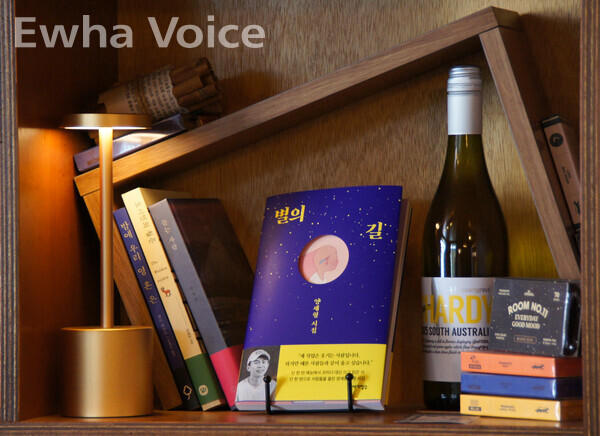
Book.ikda is an independent bookstore near Mapo-gu, which also operates as a bar. The place provides personal space to spend time reading books on personal essays, novels, and selfreflection books while drinking beverages.
Yookyeom Jeon, the owner of Book.ikda, elaborated on the importance independent bookstores contributed to society as another creative space.
“Among the overload of choices for leisure, independent bookstores act as a curated space where people with similar interests gather to form a small community,” Jeon said. “But if the government does not consider its role in society, such cultural experiences will inevitably diminish.

